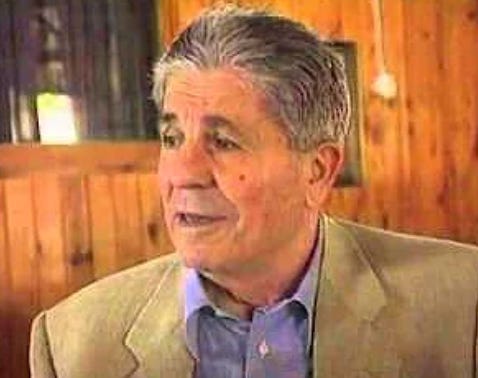Will Israel Engineer a Second Civil War in Lebanon?
Even if Israel’s ground operations in Lebanon don’t yield positive results, Israel will want to leave behind a nasty parting gift for its neighbors
Since Israel launched a limited ground invasion of Lebanon on October 1, 2024, the Jewish state’s most recent invasion of the Levantine state has all the markings of a military quagmire.
According to a Hezbollah statement, Israel has suffered roughly 700 casualties — 70 dead and over 600 wounded officers and soldiers of the Israel Defense Forces. Despite all signs that Israel is about to drag itself into another protracted military conflict, the Israeli state is still committed to carrying out geopolitical shenanigans of some shape or form.
There’s no real meaningful opposition in the Jewish state who will consider a more restrained foreign policy. For all intents and purposes, Israel’s current actions in Lebanon will likely draw the United States into this conflict via increased military aid or direct intervention in the worst case scenario. The example of former Prime Minister and current Leader of the Opposition Yair Lapid is rather revelatory. He recently advocated for the re-establishment of the South Lebanese Army (SLA) in an article he penned at The Economist on October 8. For those unaware, the SLA gained notoriety in the 1980s for serving as a de facto proxy military force for Israel during the Lebanese Civil War (1975-1990).
Lapid called for the reorganization of “Lebanon’s political structure and, importantly, rebuilding its army.” In effect, he was calling for regime change in Lebanon, proclaiming, “the international community will need to appoint a sort of oversight committee for Lebanon to manage its civilian life for a set period until elections can be held and a new government can take control.”
“Lebanese soldiers currently earn $120 a month, and even this money does not always arrive. With investment that would be negligible in international terms, a South Lebanese army can be built, positioned south of the Awali River, acting as a buffer between Israel and Hezbollah,” Lapid noted.
RELATED: Why the U.S. Must Not Entangle Itself in a Renewed Israel-Hezbollah Conflict
“In the past the South Lebanon Army that existed in this area was of a totally different and more limited nature. Crucially, it was a completely separate entity from the Lebanese Armed Forces, the official army of Lebanon, and acted without coordination or instruction from the country’s government. It must be different this time” the former Israeli Prime Minister continued.
The former Prime Minister believes recruiting new soldiers for the SLA will be easy. It’s just a matter of being able to pay them $500 a month. American, Emirati, and French military forces would then train these forces. All told, Lapid’s assumptions about stabilizing Lebanon are wishful thinking at best when taking into account the checkered history between Israel and Lebanon.
A Trip Down Memory Lane
Israel helped set up the SLA in 1976 after the Lebanese government disintegrated because of the country’s civil war (1975-1990). The SLA was largely made up of Lebanese Christians and carried out operations during the Lebanese Civil War and after, all the way up until 2000. The SLA was originally titled the Free Lebanon Army, The SLA was initially created by Major Saad Haddad, a Lebanese of Greek Catholic confession, who previously served in the Lebanese Army. Following Haddad’s death in 1984, General Antoine Lahad, a Maronite Catholic, assumed the leadership of the SLA.
The Israelis provided financial aid, training, and weapons to the SLA. In return, the SLA maintained a security buffer zone in southern Lebanon. This part of Lebanon was strategically important to Israel, as it sought to stymie attacks from the Palestine Liberation Organization (PLO) and Lebanese paramilitary organizations such as Hezbollah.
A 1986 CIA report revealed that the SLA helped Israel establish a security zone in southern Lebanon. Like any classic proxy force, the SLA militants, as opposed to Israeli soldiers, took all the blows in the fight against the Lebanese resistance. The use of a Lebanese proxy was used to minimize “politically unacceptable Israeli losses” and make sure that Israel would remain unscathed in an otherwise messy military scuffle.
Curiously, the CIA report observed that the Lebanese Shia denizens, who were 75% of population in the security zone in southern Lebanon, viewed SLA leader Lahad as an “Israeli stooge.” Shia resistance group Hezbollah exploited this sentiment to build the strongest resistance force against the Israeli occupation forces in southern Lebanon.
RELATED: Has Israel Gone Off the Deep End?
When one looks at Israel’s involvement in Lebanon from a cynical geopolitical perspective, it becomes clear that its support of the SLA was designed to undermine the Lebanese state and create a Maronite puppet state in Lebanon that would advance Israeli interests. However, none of Israel’s lofty schemes came to pass in the end. The SLA imploded in May 2000 following Israel’s decision to unilaterally pull out its forces out of southern Lebanon. Many SLA members escaped to Israel and other countries to avoid reprisals from Hezbollah and other Lebanese factions who were looking for vengeance.
Lebanon’s History of Giving Israel Fits
Recent history has shown that despite Lebanon’s perennial instability, one thing that unites its embattled population is its opposition to Israeli interventions in its internal affairs. That dynamic has made Lebanon a thorn in Israel’s side for some time. The world was taken by surprise when Israel was forced into a stalemate against Hezbollah during the 2006 Lebanon War. Since then, the Israelis have been looking to draw blood against their Lebanese rivals.
In 2023, the Israelis would finally get their wish. The October 7 attacks by Hamas in Israel, gave the Jewish state a pretext to open a new front against Lebanon, after Hezbollah started launching rockets into northern Israel as a response to the Jewish state’s ethnic cleansing campaign in Gaza. The Israelis were able to collect major scalps by launching successful decapitation strikes against Hezbollah leader Hassan Nasrallah and his would-be successor Hashem Safieddine.
Despite these critical losses to Hezbollah’s leadership, the Shia militant group continues to conduct operations and has effectively bogged down IDF forces in southern Lebanon while displacing tens of thousands of Israelis in northern Israel through a constant barrage of rocket attacks. Israel has responded in kind with a terror campaign akin to what it’s executing in Gaza, by launching airstrikes against civilians across Lebanon. According to estimates by Lebanon’s Health Ministry, over 1,500 Lebanese have perished in Israeli airstrikes ever since Israel ramped up military operations earlier this month.
Will Israel Go Out With a Bang?
The Israelis are engaging in wanton violence that accomplishes no meaningful military objectives. The Israeli ruling class is clearly in a state of rage and has no desire to think through the long-term consequences of their foreign policy actions. The country’s changing demographics, as evidenced by the ascendance of Mizrahi (Middle Eastern Jews) and religious fundamentalist sects, have played a significant role in Israel’s descent into utter insanity. These new actors in Israel’s political scene are hell-bent on consummating the “Greater Israel” project of creating a Jewish empire from the Nile to the Euphrates. A fantastical project if there ever was one.
While it’s unlikely that Israel will realize its Old Testament fantasies, it will look for ways to continue wreaking havoc in the Middle East, thereby increasing the likelihood of a Western intervention to bail it out. Lapid’s suggestions for resurrecting a 21st century form of the SLA will only bring about further destabilization to Lebanon.
If Israel can’t achieve its grandiose foreign policy vision, what’s to stop it from leaving the world a nasty parting gift in the form of a second civil war in Lebanon or worse yet, dropping a tactical nuke in southern Lebanon?
Given Israel’s long history of causing geopolitical perfidy abroad, one cannot put it past the Israelis to proverbially “rage quit” and leave its near abroad in complete shambles for the West to piece back together.









The first Lebanese civil war never really ended.
I'm half Christian Lebanese. I've been saying from the beginning of this conflict that all of the Shai displaced to the northern Christian areas will cause unrest and a second civil war. All Israel has to do is Orchestrate a false flag from either side.